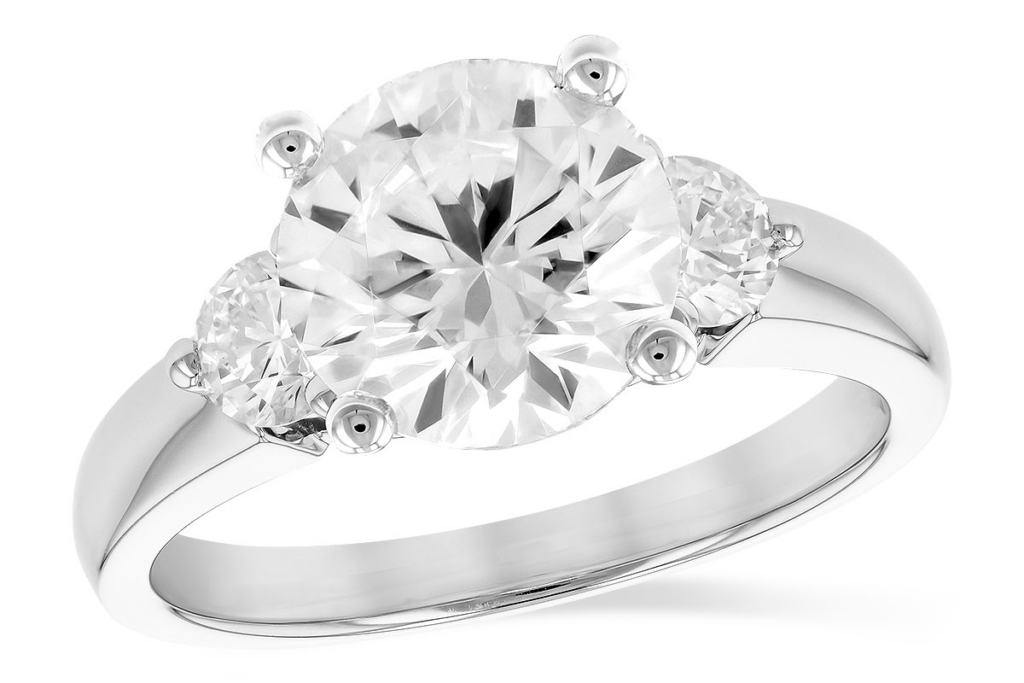The quick answer is no, Platinum on its pure form is not magnetic (a paramagnetic metal). It is also hypoallergenic, which means that it will not react to sweat, will not tarnish, nor corrode. Just like gold, pure platinum is soft and malleable in that it is alloyed with different metals which may or may not have magnetic properties.
Read: Choosing the Best Metal for your Wedding Bands or Engagement Ring (Part 2)
Can Platinum be attracted to a magnet?
In its purest form, Platinum is a paramagnetic metal. This means that its magnetic element is so weak that it is barely traceable and will not react to magnets.
However, pure platinum is considered a precious metal and is one of the rarest materials on earth. This is why platinum is, in one way or the other, is mined with some other compounds such as iron, cobalt, silver, or some other magnetic metals.
Why is my Platinum jewelry sticking to magnets?
The main reason why your platinum jewelry is sticking to magnets is probably because of the alloys used. Your platinum jewelry may have been combined with magnetic alloys or other magnetic or corrosive metals.
Platinum is very soft, around 4-5 in the Mohs scale of hardness (only slightly harder than gold). Using it in its purest form, it isn’t malleable and will get scratched easily, thus not ideal for jewelry.
Therefore, just like gold and silver, platinum is mixed with other elements such as iridium, cobalt, copper, rhodium, titanium, and palladium to make it a harder and malleable fit for jewelry. These are called platinum alloys. Gold and Silver are also soft which is why other metals are mixed to it as well.

What alloys are best for platinum jewelry?
There are 4 popular platinum alloys used in the U.S. – that is Iridium, Palladium, Ruthenium, and Cobalt. Each will be discussed separately below.
Platinum and Iridium
This is the most common and most preferred platinum alloy in the market. Iridium belongs to the platinum group metals, which means that this metal is close if not similar to platinum. Thus, it is also non-magnetic, hypoallergenic, and does not tarnish, making it great for everyday wear, and for those with sensitive skin
Between 950/50 and 900/100, the latter is more preferred. 950/50 is more prone to dents and scratches than the 900/110. On the other hand. 900/100 is easier to wield and can either be hand-worked or cast. It is also easier to design with gemstones and intricate designs and is resistant to wear.
Platinum and Palladium
As part of the platinum group metal, Palladium is another alloy used for platinum jewelry. This means that its chemical composition is similar to platinum. It also means that it’s not magnetic and nickel-free. It is fairly tarnish-resistant (will only oxidize at extremely high temperature, around 600 degrees Celcius)
Palladium alloys are softer than Ir alloys, thus are preferred for more detailed work. 900/100 is often used, with a hardness similar to Pt/Ir alloy.
Note however that to harden Pt/Pd, copper is usually added (of around 5%)
Platinum and Ruthenium
If your jewelry is somewhat reacting to magnets, then you might have a Pt/Ru alloy. Ruthenium is a ferromagnetic element (has magnetic properties) and is harder than the Ir and Pd alloys. Therefore, it is harder to mold and create intricate designs. It is more popular with wedding rings and simple engagement rings rather than other pieces of jewelry.
Platinum and Cobalt
Another popular alloy to use with Platinum is Cobalt. Similar to Ruthenium, it is also a ferromagnetic metal, meaning it is attracted to magnets.
Many use Pt/Co 950 as this combination is best used for casted jewelry rather than hand-made pieces. Unlike other alloys, this one tarnishes when extreme heat is applied (when soldering) so added steps are needed to be done.
If my platinum is with magnetic alloys, will it greatly affect tools sensitive to magnetism?
Unless you are wearing magnetic jewelry and you have an electronic implanted medical device installed in your body, then there isn’t any problem with wearing platinum with magnetic alloys, especially since the magnetic force
Why choose Platinum jewelry
Platinum jewelry, depending on the alloy used can be darker in appearance than silver and white gold. However, they are strong, durable, will not tarnish, and is best for everyday wear. It also does not have to be plated, thus maintenance is easier compared to white gold and other plated metals.

In addition, platinum is hypoallergenic, which means it will not react to sweat, and won’t give any rashes. Thus, it is crucial to choose an alloy that has the same properties.
Not sure about your platinum jewelry? or maybe you want to buy or commission one for yourself or your loved one? AaLAND is here to help. Our professional jewelers can assist you with anything from jewelry assessment, customization, and even ring resizing. Just call us using our hotline or contact us using our contact page and our trusted jewelers will get in touch with you as soon as possible.



